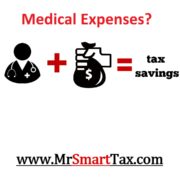IRS 2023 Mileage rates

Per IR-2022-234, December 29, 2022
WASHINGTON — The Internal Revenue Service today issued the 2023 optional standard mileage rates used to calculate the deductible costs of operating an automobile for business, charitable, medical or moving purposes.
Beginning on January 1, 2023, the standard mileage rates for the use of a car (also vans, pickups or panel trucks) will be:
65.5 cents per mile driven for business use, up 3 cents from the midyear increase setting the rate for the second half of 2022.
22 cents per mile driven for medical or moving purposes for qualified active-duty members of the Armed Forces, consistent with the increased midyear rate set for the second half of 2022.
14 cents per mile driven in service of charitable organizations; the rate is set by statute and remains unchanged from 2022.
These rates apply to electric and hybrid-electric automobiles, as well as gasoline and diesel-powered vehicles.
The standard mileage rate for business use is based on an annual study of the fixed and variable costs of operating an automobile. The rate for medical and moving purposes is based on the variable costs.
It is important to note that under the Tax Cuts and Jobs Act, taxpayers cannot claim a miscellaneous itemized deduction for unreimbursed employee travel expenses. Taxpayers also cannot claim a deduction for moving expenses, unless they are members of the Armed Forces on active duty moving under orders to a permanent change of station. For more details see Moving Expenses for Members of the Armed Forces.
Taxpayers always have the option of calculating the actual costs of using their vehicle rather than using the standard mileage rates.
Taxpayers can use the standard mileage rate but generally must opt to use it in the first year the car is available for business use. Then, in later years, they can choose either the standard mileage rate or actual expenses. Leased vehicles must use the standard mileage rate method for the entire lease period (including renewals) if the standard mileage rate is chosen.
Notice 2023-03PDF contains the optional 2023 standard mileage rates, as well as the maximum automobile cost used to calculate the allowance under a fixed and variable rate (FAVR) plan. In addition, the notice provides the maximum fair market value of employer-provided automobiles first made available to employees for personal use in calendar year 2023 for which employers may use the fleet-average valuation rule in or the vehicle cents-per-mile valuation rule.










